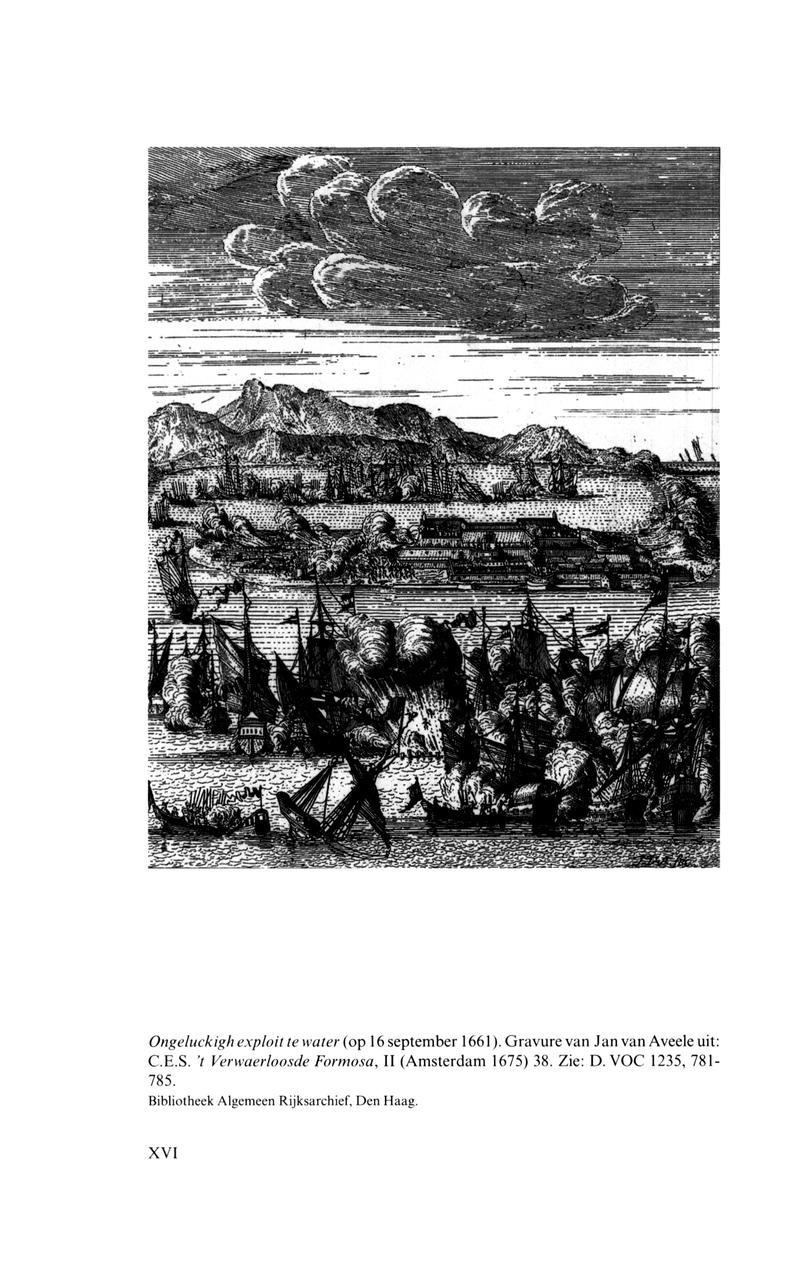Until the arrival of the Europeans, Formosa had always been an independent island. Before that time however, it had been regularly visited by the Chinese.The imperial court actually deemed the island as 'wild', inhabited by a people the Chinese had, for the sake of convenience, put in the 'Eastern barbarians ' category, among others like the Japanese and the Koreans. That way the world remained coherent for the Chinese, as they merely had to know in what direction a nation lived to put it in the proper category.The term 'barbarian' did not imply a qualitative judgement about the people mentioned in the different categories. Chinese merely wanted to indicate that a people had not (yet) accepted Chinese culture.
The Chinese were indifferently disposed towards wether a people accepted their culture or not. The Chinese never had any enthousiasm towards converting a populace into a more confucian-infused way of life, nor had they any for sending missionaries to oversea territories. Neither have the Chinese ever tried to colonize oversea territories to increase the prosperity of their country, like the Europeans did on a grand scale. The Chinese , mostly from Fiujian, did however move out, mostly on a private base to settle in South East Asia.
At the beginning of the 7th century, according to the history books from the Sui dynasty(589-648), a general was sent out to investigate which people and nations lay to the east, because on clear days dust clouds or smoke could be observed.The general arrived on an island, which is assumed to have been Formosa. He and his men could not understand the language of the local population, so they kidnapped one of the inhabitants and returned to China.
The year after that, the general was sent to the the island again, this time accompanied by soldiers, and the assignment to conquer the island. The population resisted, upon which the general burnt down houses, and there is word of a few thousand captives. The general then returned to China.
The famous eunuch-admiral Zheng He also visited the island ... On the return voyage of one of his seven expeditions, he anchored at Formosa, being driven there by a storm. He went ashore and made contact with the locals and proposed for them to submit to the Chinese emperor, and to visit him in Peking to offer tribute. The locals refused. After gathering some medicinal herbs, Zheng left the island.
More detailed information about the way of living of the inhabitants was obtained by the Chinese in 1603. In that year the admiral Shen Yourong(the same admiral who would one year later force Van Warwijck's fleet to depart from the Pecadores) led an expedition to Formosa to combat the wokou's.(Chinese-Japanese pirates) One of the commanders of this expeditionary force, Chen Ti, investigated the local customs and wrote a short report about them.
"... there are people who have no knowledge of days or months, no officials nor administrators, who go naked and use the quipu (editor note: Dutch describe these as assegaai)...isn't that remarkable! And further, they live in the middle of the ocean and don't fish. Men and woman live together, yet they are not licentious regarding sexual relations. Up to this day they have no calender nor writing - indeed highly remarkable...They are a carefree people like during the times of the great emperors."
"...In the winter of 1602 the wokou's once again attacked the island. Both the locals and Chinese merchants bore the consequences. General Shen of Wuyu went there to destroy them, and me, having an opportunity to get to know the sea, went with him. After we destroyed the wokou's, we anchored at Tayouan, where barbarian chieftain Damila, together wirh a few dozen men paid us a visit. They brought venison and drink, happy to be rid of the pirates."





 Reply With Quote
Reply With Quote
























